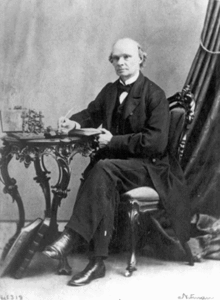Charles Dewey Day | |
|---|---|
 | |
| Member of the Special Council of Lower Canada | |
| In office May 23, 1840 – February 10, 1841 | |
| Solicitor General of Lower Canada | |
| In office May 26, 1840 – February 10, 1841 | |
| Succeeded by | Himself |
| In office February 10, 1841 – June 20, 1842 | |
| Preceded by | Himself |
| Succeeded by | Thomas Cushing Aylwin |
| Member of the Legislative Assembly of the Province of Canada for Ottawa County | |
| In office 1841 – June 21, 1842 | |
| Preceded by | None; new position |
| Succeeded by | Denis-Benjamin Papineau |
| Court of Queen's Bench, Lower Canada | |
| In office June 28, 1842 – December 31, 1849 | |
| Superior Court of Lower Canada | |
| In office January 1, 1850 – 1862 | |
| Commission for the Codification of the Civil Laws of Lower Canada | |
| In office February 4, 1859 – August 1, 1866 Serving with René-Édouard Caron, Augustin-Norbert Morin (1859–1865), and Joseph-Ubalde Beaudry (1865–1866) | |
| Royal Commission of Inquiry into the Pacific Scandal | |
| In office 1873–1873 Serving with Antoine Polette and James Robert Gowan | |
| 1st Chancellor of McGill University | |
| In office 1864–1884 | |
| Succeeded by | James Ferrier |
| Personal details | |
| Born | May 6, 1806 Bennington, Vermont |
| Died | January 31, 1884 (aged 77) England |
| Political party | Government Tory |
| Spouse(s) | (1) Barbara Lyon (m. 1830) (2) Maria Margaret Holmes |
| Relations | Benjamin Holmes (father-in-law) |
| Children | 3 |
| Profession | Lawyer; judge |
| Known for | Civil Code of Lower Canada |
Charles Dewey Day, QC (May 6, 1806 – January 31, 1884) was a lawyer, political figure, and judges in Lower Canada and Canada East (now Quebec). He was a member of the Special Council of Lower Canada, which governed Lower Canada after the Lower Canada Rebellions in 1837 and 1838. He was elected to the first Legislative Assembly of the Province of Canada in 1841, but resigned in 1842 to accept an appointment to the Court of Queen's Bench of Lower Canada.
Day also served on the commission for the codification of the civil laws of Lower Canada, which produced the Civil Code of Lower Canada, enacted in 1866. Day wrote all of the provisions of the Civil Code relating to commercial law, and most of the provisions relating to property rights. He was later appointed to the federal royal commission investigating the Pacific Scandal, whose investigation contributed to the downfall of the federal Conservative government of Sir John A. Macdonald in 1873.
Day was interested in promoting education throughout his life, and from 1864 to his death in 1884 while visiting England was the first chancellor of McGill College (now McGill University).